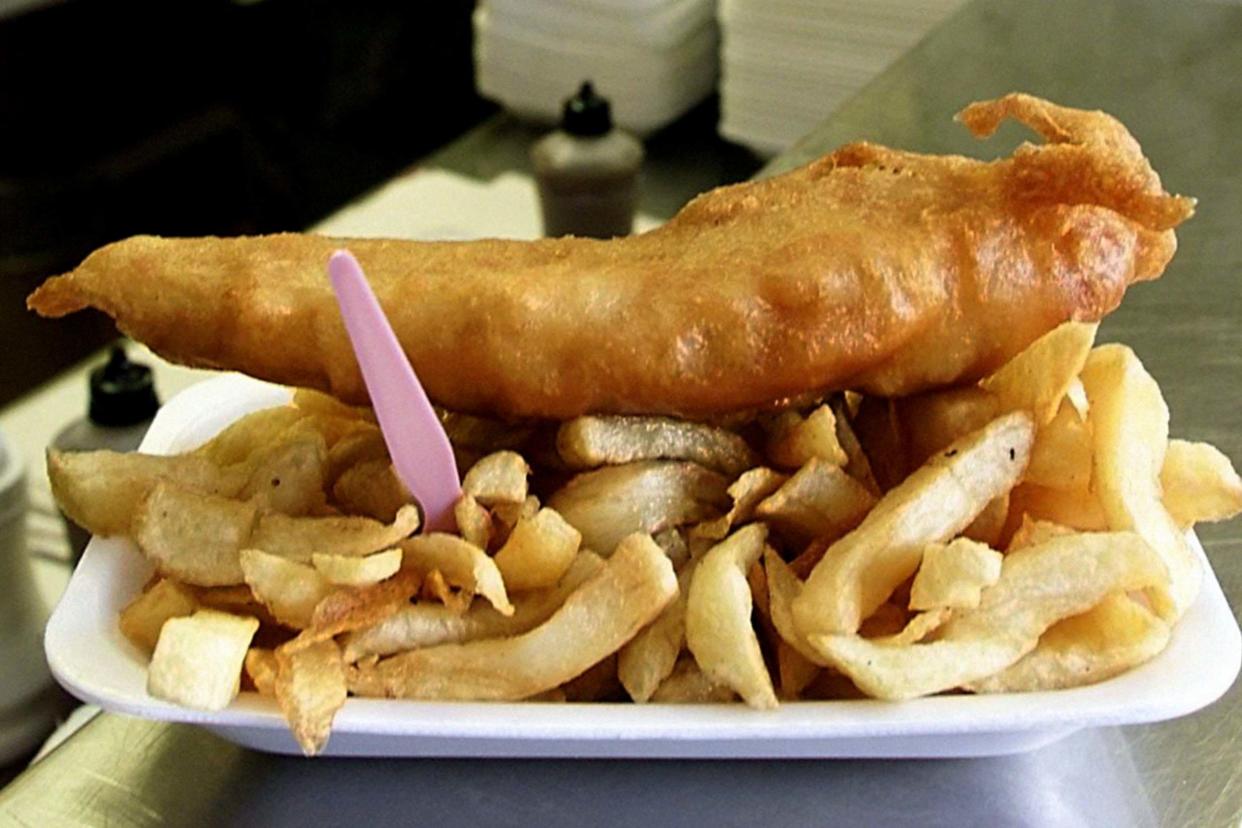Cod and monkfish could disappear from menus due to climate change threat, study warns

Popular takeaway dish cod and chips could disappear from British menus in the coming years due to climate change, a new study has warned.
Researchers concluded that Brits may have to adapt their diets to save the threatened species, along with monkfish and megrim, which are also at risk, after analysing the effect of climate change on fish stocks in south west England.
The Celtic Sea, English Channel and southern North Sea have experienced significant warming over the past 40 years, and further increases in sea temperatures are expected.
Computer projections up to the year 2090 suggest increases in abundance of warm-adapted species such as red mullet, Dover sole, John Dory and lemon sole, and decreases in cold species - a category which cod, monkfish and megrim belong to.
Declining species may therefore need help to survive, according to the study by the Universities of Exeter and Bristol, the Centre for Environment, Fisheries and Aquaculture Science (Cefas), and the Met Office, which also warned warmer seas would have implications for the wider ecosystem.
Lead author Dr Katherine Maltby, who undertook the research while at Cefas, said: “Our results show that climate change will continue to affect fish stocks within this sea region into the future, presenting both potential risks but some opportunities that fishers will likely have to adapt to.
“Consumers can help fishers take advantage of these fishing opportunities by seeking out other fish species to eat and enjoy.”
Co-author Louise Rutterford, from University of Exeter, added: “We know from working with fishers that warmer water species are appearing in catches more.
“Bringing together their ‘on-the-ground’ experiences with studies like ours will help inform future management decisions that enable sustainable exploitation while supporting fishers’ adaptation.”
Campaign group Greenpeace UK's Philip Evans meanwhile warned that the world's oceans were "changing at an unprecedented rate" and said the UK was already witnessing "tangible impacts" sparked by their warming.
“While our oceans adapt to these changes, we must reduce the pressures being placed on them and the life that calls them home, which includes curtailing rampant industrial fishing activity, like that of supertrawlers," Mr Evans, Greenpeace UK's oceans campaigner, said.
“We need a coherent network of ocean sanctuaries, protecting at least 30% of our oceans, to give marine life space to adapt and thrive, and to safeguard vital blue carbon stores.
“We must also urgently reduce our emissions and reliance on fossil fuels to help us tackle the climate emergency at source.”
Read more
The best fish and chips shops offering takeaway and delivery in London
Mass marine extinction event linked to global warming
Climate change exerting increasing impact on UK, Met Office says

 Yahoo News
Yahoo News 
